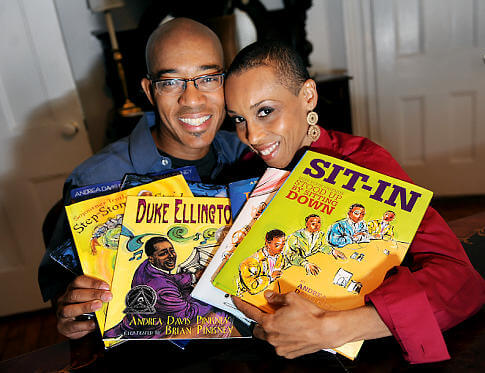Reading, Writing and Social Relevance: A “Social Justice Saturday” at Teachers College

How does a teacher support these students? What is the educator’s role in helping students understand and navigate through these sometimes very personal threats to safety and social justice? How can reading and writing specialists, in particular, lay the groundwork for a better future, both immediate and long-term?
Six hundred educators convened earlier this fall at Teachers College to begin to answer these questions. Sponsored by the Teachers College Reading and Writing Project, the “Social Justice Saturday” was something “educators were hungering for,” said TCRWP founding director Lucy Calkins, Robinson Professor of Children’s Literature.
“Unfortunately, for gatherings like this to happen, there are always catalyzing events,” said lead TCRWP staff developer Cornelius Minor in his opening remarks to the symposium. But, he said, “the people who make the headlines are simply the public face of a much larger system designed to ensure that poor folks, women, people of color, gay people, transgender people, religious minorities, and people with disabilities get less.”
“Today,” he told the crowd,” is designed to give you tools to raise, maintain, and act on your systemic awareness.”
“Our community really banded together on short notice,” said Calkins. “You could feel the energy everywhere. People left truly inspired and motivated to make a real difference in the world through their work. I know I was.”
TCRWP staff, TC faculty and doctoral students, and other community leaders and educators led a series of 17 workshops over the course of the day, with titles such as “Help Kids Write Stories They Wish Existed in the World,” “Building Empathy in the Classroom,” and “Yes We Can – and Must – Teach Racial Consciousness in Mostly White Schools.” In “Be the Teacher Your Muslim Students Need in Today’s World,” Hareem Atif Khan, an instructor in TC’s Literacy Specialist program, reminded teachers that, despite popular misconceptions engendered by the media, “there are as many Islams as there are Muslims.” She implored teachers of Muslim students to get to know the students’ parents, to insist that students write authentic, personal narratives in the classroom, and to teach them to become self-advocates by “talking back to the media.”
"The aim of ‘Social Justice Saturday’ was to give teachers a starting kit to make every day a social justice day, so they can help students create better futures for themselves and the world.” — Lucy Calkins
TCRWP staff developer Arlène Casimir-Siar led a workshop called “Trauma-Informed Writing: Creating Shared Writing Experiences to Help with Recovery.” Relaying her own experiences as a lead teacher and character and community coordinator in post-Katrina New Orleans, Casimir-Siar described ways teachers can turn their classrooms and workshops into “oases in a storm” and help traumatized students regain a sense of control through writing. She then invited workshop participants to practice self-transparency through a short writing exercise.
In another popular workshop, “Struggle Is Not the Only Narrative: Making LGBTQ a Story of Beauty,” TCRWP senior staff developer and TC alumna Katy Wischow took a straightforward approach to helping participants discover LGBTQ-themed Young Adult books with complex characters and storylines. Noting that even well-intentioned books of the past focused on the struggles of LGBTQ lives, Wischow presented a substantial list of mostly recent works that could open up new perspectives for young readers, and invited participants to suggest their own favorites.
Bookending the workshops were spirited talks from award-winning creators of books for children and young adults: the writer/illustrator (and wife/husband) team of Andrea Davis Pinkney and Brian Pinkney (Sit-in: How Four Friends Stood Up By Sitting Down; Sojourner Truth’s Step-Stomp Stride; Martin & Mahalia,), and author Janet Wong (Min and Jake; Apple Pie 4th of July), who described leaving a career in corporate and labor law to advance social justice through children’s literature.
But it was something that Andrea Pinkney said in the opening session that became a theme repeated by many participants throughout the day: “What do we want the world to look like in 2040?” The work to make that vision possible, she said, must begin in classrooms today.
As Calkins said, “The aim of ‘Social Justice Saturday’ was to give teachers a starting kit to make every day a social justice day, so they can help students create better futures for themselves and the world.”—Robert Fuller
Published Wednesday, Dec 20, 2017